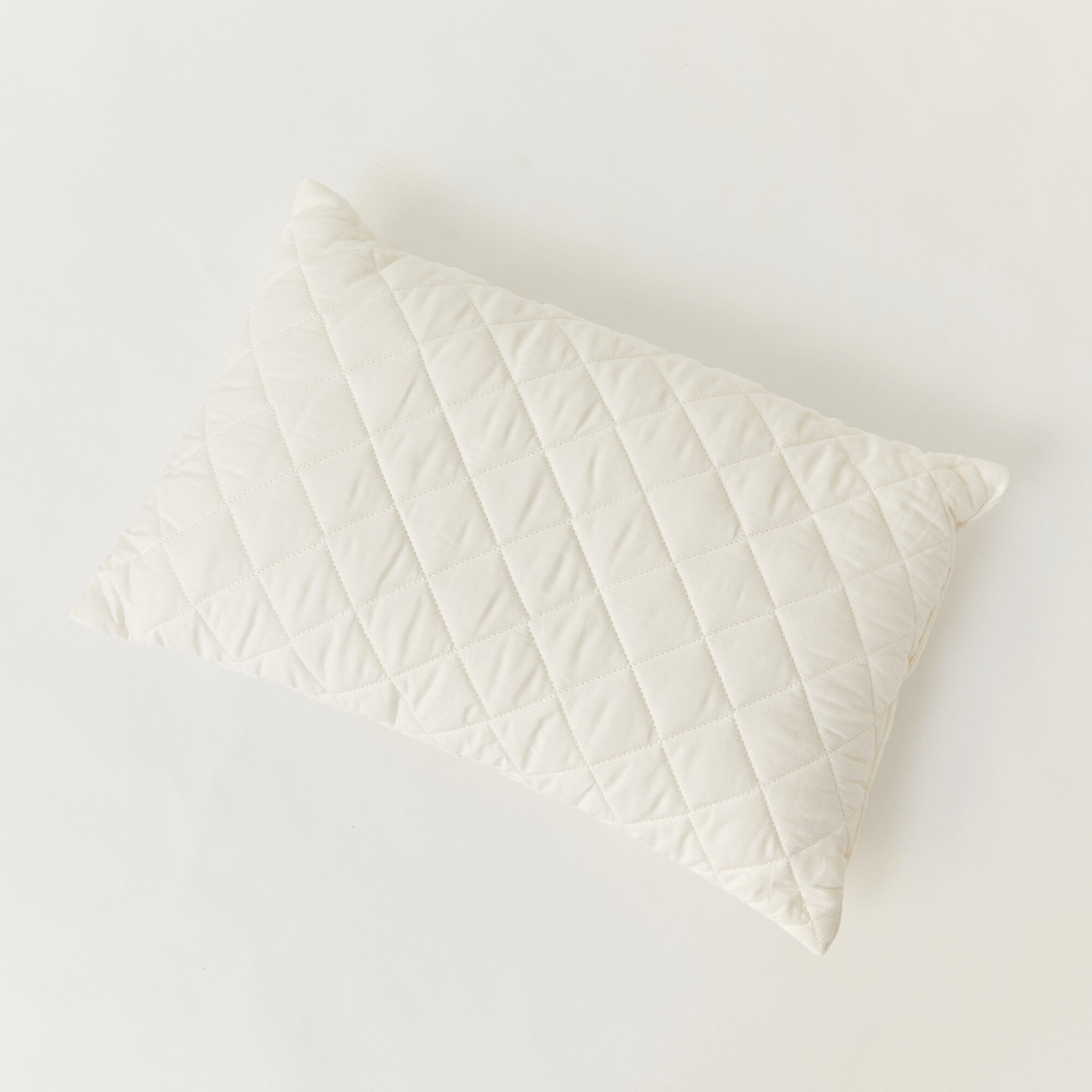Organic Cotton vs Plastic Bedding:
Everything You Need To Know

In the world of bedding, two fabrics dominate - cotton and polyester. If you take a close look at the materials listed on the care label of your sheets, you may find them to be 100% cotton, a ‘polycotton blend’ or even made solely from polyester. You might think that as long as they are affordable and feel good, what they’re made of doesn’t matter, but there are some key differences you should be aware of.
How it’s made…
Polyester is essentially plastic. It is a fibre made in a lab from petroleum, so creating it uses crude oil, a non renewable fossil fuel. It is thermoplastic, meaning it melts when exposed to heat.
When it is made in the lab, pellets of polyester are melted and extruded to create long filaments which can be cut and woven into fabric. These long filaments are solid plastic, there is no air space inside them, so when they are woven together they are very strong and hard wearing.

Organic cotton is grown naturally by farmers in fields. To earn the organic label it must be grown without environment damaging pesticides, instead the farmers work with nature's cycles of rain, sun and seasons to grow healthy and sustainable crop which enriches the local ecosystem. Unlike the crude oil required to make polyester organic cotton could keep growing indefinitely and takes nothing away from the world.
Moisture
There’s nothing worse than being unable to sleep due to feeling too hot and sweaty at night. Polyester causes this issue, as the fabric is made of those solid plastic fibres so is not absorbent or moisture wicking at all. The hydrophobic fabric will not absorb sweat at all and can in fact make you warmer.
If night sweating can be an issue for you, always look for 100% cotton sheets as the natural fibres of cotton will wick moisture away from the skin and absorb sweat, leaving you feeling fresher and better able to sleep through the night.
Breathability
It is especially important that babies do not overheat as they sleep, as this can increase risk of SIDS. Choosing bedding that allows airflow and is made of breathable fabrics will help them to regulate their temperature and will prevent heat build up between the fabric and skin. Cotton is very breathable, helping everyone to stay warm in winter and cool in summer.

As you’ve probably guessed by now, polyester is not breathable at all, as those synthetic fibres do not allow air to pass through each fibre. Wearing non-breathable fibres can exacerbate skin conditions such as eczema and acne, as the skin is trapped behind the fabric and cannot breathe, sweat and regenerate as it naturally needs to.
Static
Ever had an electric shock? Not very restful right! Polyester is often the cause of those surprise zaps. We wrap ourselves in it, in the form of clothing or bedding, and when we rub against another synthetic material or a material with the opposite charge - zzzzap! Not what you want as you’re drifting off to sleep.
At the end of the day…
So we’ve established that organic cotton is more comfortable to sleep in than polyester, and a better option for a blissful bed, but what happens when the sheets have reached the end of their life and are ready to be disposed of? Well cotton is biodegradable, whereas polyester, being a plastic, is going to be around in landfill forever!
From start to finish, organic cotton is a better choice for bedding. It is made better, will feel better, help you sleep better and will be much better for the environment long into the future.
